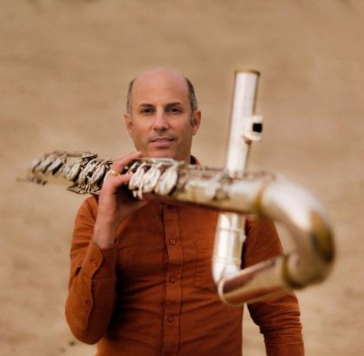The role and ethics of professionals in business and economics have been questioned, especially after the financial crisis of 2008. Some suggest a reorientation using concepts such as craftsmanship. In this article, I will explore professional practices within the context of behavioural theory and business ethics. I suggest that scholars of behavioural theory need a strategy to deal with normative questions to meet their ambition of practical relevance. Evidence-based management (EBMgt), a recent behavioural approach, may assist business ethics scholars in understanding how professionals infer ‘evidence’ to make decisions. For a professional, ethical issues are an integral part of decision-making at critical moments. As reflective practitioners, they develop insights related to ethical concerns when collecting and assessing evidence within decision-making processes.

We report research into the evolvement of a hybrid learning environment where education, companies and government successfully cooperate. This hybrid learning environment—one of the latest inventions in curriculum design—is special because it was neither intended nor planned by the parties involved. With some self-astonishment, the participants in this research experienced a growing acknowledgement of their emerging educational creation, aside from the experience of and appreciation for their cooperation and the increasing turnover. With a bricolage research approach within the scope of a rhizomatic perspective on becoming, a multivocal perspective on the evolvement of the learning environment was pursued. In emphasizing the historical evolvement of the learning environment, our findings challenge the tradition of drawing board design, accompanied by an appeal for re-appreciating professional craftsmanship. In addition, some reflections regarding the research are discussed.

In 2017 viert het toonaangevende Nederlandse kunsttijdschrift haar 40e verjaardag - een goede reden voor Kunsthal KAdE om, samen met het tijdschrift, een tentoonstelling op te zetten over de fascinerende manieren waarop kunstwerken door de eeuwen heen zijn gemaakt. De tentoonstelling weerspiegelt die interesse door een verbazingwekkende reeks kunstwerken te presenteren die een bijzonder licht werpen op materialen en technieken, vakmanschap, ideevorming en studiopraktijk.
LINK
Students in Higher Music Education (HME) are not facilitated to develop both their artistic and academic musical competences. Conservatoires (professional education, or ‘HBO’) traditionally foster the development of musical craftsmanship, while university musicology departments (academic education, or ‘WO’) promote broader perspectives on music’s place in society. All the while, music professionals are increasingly required to combine musical and scholarly knowledge. Indeed, musicianship is more than performance, and musicology more than reflection—a robust musical practice requires people who are versed in both domains. It’s time our education mirrors this blended profession. This proposal entails collaborative projects between a conservatory and a university in two cities where musical performance and musicology equally thrive: Amsterdam (Conservatory and University of Amsterdam) and Utrecht (HKU Utrechts Conservatorium and Utrecht University). Each project will pilot a joint program of study, combining existing modules with newly developed ones. The feasibility of joint degrees will be explored: a combined bachelor’s degree in Amsterdam; and a combined master’s degree in Utrecht. The full innovation process will be translated to a transferable infrastructural model. For 125 students it will fuse praxis-based musical knowledge and skills, practice-led research and academic training. Beyond this, the partners will also use the Comenius funds as a springboard for collaboration between the two cities to enrich their respective BA and MA programs. In the end, the programme will diversify the educational possibilities for students of music in the Netherlands, and thereby increase their professional opportunities in today’s job market.

A quartermaster was asked to test the support dor the establishment of two workplaces for the development of craftsmanship in restoration of heritage in the municipalities of Oldambt and Hogeland.An advise concerning possibilitiesA quartermaster was asked to test the support dor the establishment of two workplaces for the development of craftsmanship in restoration of heritage in the municipalities of Oldambt and Hogeland.